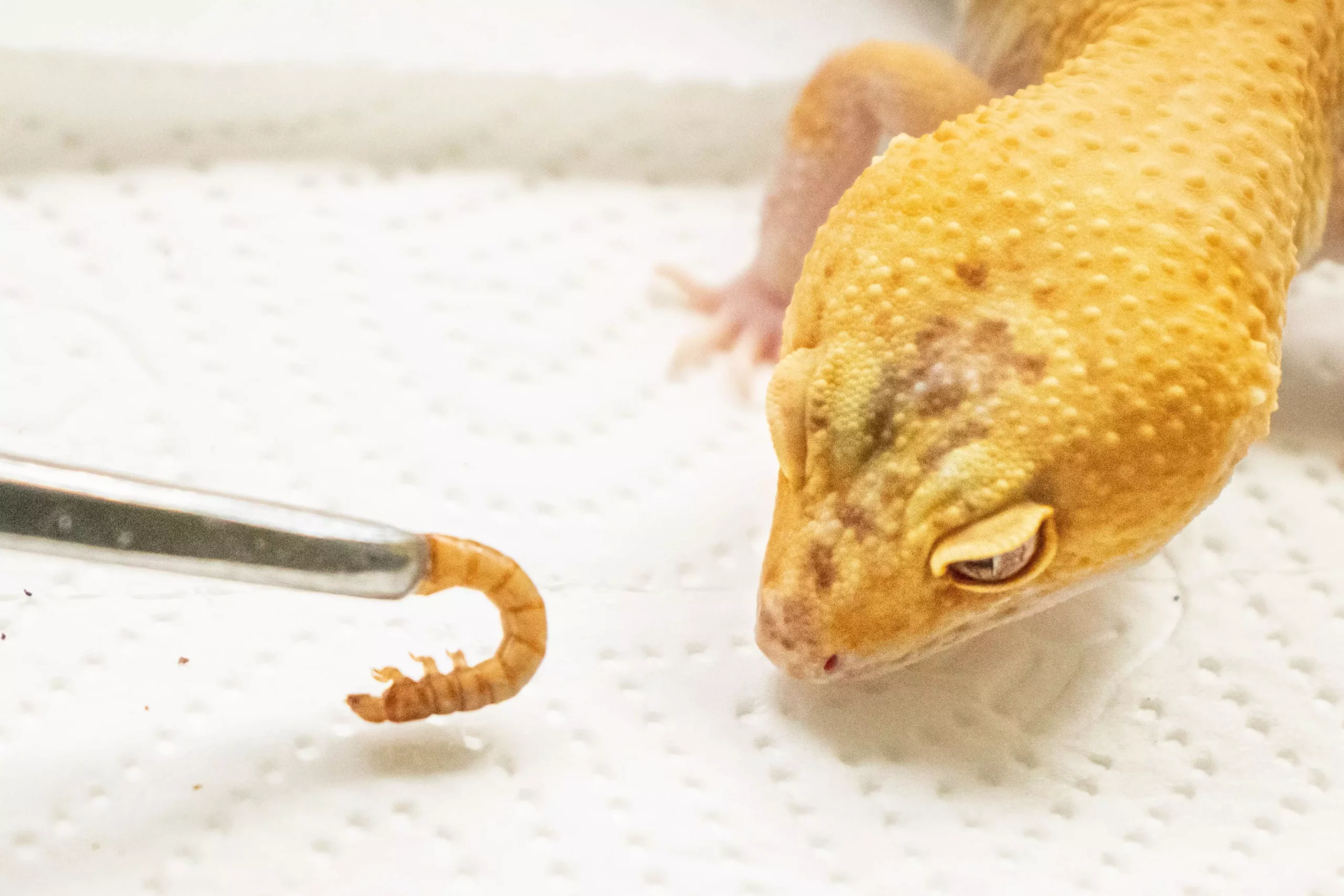Leopard geckos are fascinating reptiles that make excellent pets due to their manageable size and usually gentle temperament. However, like any pet, they can encounter health issues that may lead to feeding difficulties. If you’ve noticed your leopard gecko has stopped eating, it’s important to understand the myriad of reasons behind this behavior. In this article, we will explore potential causes for their anorexia, methods to troubleshoot the problem, and when to seek professional help.
The causes behind a leopard gecko’s sudden aversion to food can range from environmental changes to medical concerns. Often, the first factor to investigate is their habitat’s temperature. Leopard geckos are ectothermic, meaning they rely on external heat sources to regulate their body temperature. If the enclosure is too cold—below 70 degrees Fahrenheit—it can significantly decrease their metabolic rate, leading to diminished appetite. Seasonal changes, especially the transition from fall to winter, can also impact thermal regulation in their environment.
It is essential that the ambient room temperature is maintained around 80 degrees Fahrenheit. Many owners find that a combination of heat mats and heat lamps effectively creates a basking area that ensures sufficient warmth during both day and night. Monitoring the temperature accurately with thermometers will prevent the risk of cold drafts or overheating, both of which can deter risk aversion to food.
Another significant factor to consider is the possibility of fecal impaction. If your gecko has not been defecating regularly, it may be unable to eat due to a blockage. This may occur due to consuming too large or hard meals—such as super worms—or ingesting bedding materials. In such cases, employing a warm water soak combined with gentle belly massages can facilitate the passage of stool. If this method proves ineffective, a visit to the veterinarian is imperative, as they might need to perform an enema or check for underlying issues such as intestinal parasites.
To prevent future instances of impaction, consider offering a variety of appropriately-sized foods, avoiding those that may pose digestive risks, and ensuring a suitable substrate in the tank.
Beyond environmental influences and dietary mishaps, illness can also contribute significantly to your leopard gecko’s reluctance to eat. Respiratory infections, for instance, are not uncommon in reptiles and can cause both discomfort and loss of appetite. Symptoms may include wheezing, nasal discharge, or lethargy—indicators that suggest a need for veterinary intervention.
Injuries or skin problems, such as stuck shed skin around the eyes or other body parts, can severely reduce a gecko’s quality of life and cause feeding issues. Eye problems may obstruct their ability to catch prey, while any physical discomfort may lead to a general disinterest in food. Regular inspections of your gecko’s physical condition can illuminate potential issues early on.
If your leopard gecko is acting unusually—being excessively sluggish, secretive, or displaying other abnormal behaviors—it’s crucial to assess its overall wellbeing. Start by evaluating its environment for stress factors, ensuring it is a safe, comfortable, and enriched habitat without undue environmental aggressors.
Aside from external conditions, be observant regarding your pet’s defecation, hydration, and overall activity levels. A healthy leopard gecko should be lively and active, and any deviations from this norm should prompt an investigation.
If after implementing environmental adjustments and observing for signs of distress you still find your gecko won’t eat, don’t hesitate to consult an exotic animal vet. Early veterinary intervention can lead to better outcomes for sick reptiles.
While there is no definitive way to prevent potential loss of appetite entirely, there are effective strategies to support your gecko’s health. Keep their enclosure warm and appropriately furnished—avoiding excessive bedding and ensuring feed is digestible. Handle your gecko gently to prevent any injuries and observe its feeding habits consistently.
Promptly addressing any signs of illness or distress will be beneficial in keeping your gecko healthy and happy. While there are various reasons for your leopard gecko’s refusal to eat, with careful observation, adjustment, and professional assistance, many issues can be resolved. Always remember that being proactive about your pet’s health is the best remedy.

